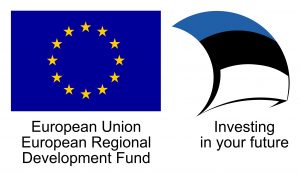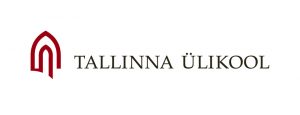Tallinn Summer School: The Soviet otherwise: Affects, margins, and imaginaries in the Late Soviet era
At the 2019 Tallinn Summer School, we aim to bring together leading scholars and PhD students who are interested in discussing and studying the Soviet otherwise and considering some of its continuing ramifications in the post-Soviet era. We propose to consider the Soviet “otherwise” in at least two ways. First, we invite students to touch upon the unspeakable, silenced, and marginalized in late Soviet society: people, deeds, and thoughts, but also feelings, moods and sensations that caused cultural discomfort or embarrassment, or were taken as insignificant, trivial, or too intimate for inclusion in the sphere of open social discourse. Second, we invite students to explore research methodologies that are still new or little explored in the context of Soviet studies. We look for research agendas that pursue dialogue with various strands of critical theory, including (but not limited to) affect studies, postcolonial studies, new materialism, gender and queer studies. The main focus of the summer school will be on the late Soviet period, but we also welcome approaches to the post-Soviet era that are interested in continuities between the late and the post.
The course aims to address the following questions, among the others:
– How to combine analyses of the bodily, sensate experience of singular lives with the larger discursive structures that define the cultural common ground in a specific era?
– How to critically describe public moods and shared structures of feeling that circulated in late Soviet societies?
– How to explore the late Soviet era in a multidirectional mode, taking into account simultaneously its affective, material, and ideological layers?
– What new perspectives have the material and visual turn opened for the studies of Soviet culture and society?
– How to access and sensitively analyse the delicate spheres of intimacies?
– How to take advantage of different sources, media and genres in order to explore the Soviet society and culture otherwise?
– How to theorize the coexistence of radically different life-worlds in the USSR, while respecting the essential complexity of these differences?
– How to sustain the critical impulse to complicate dichotomies of the era (free-totalitarian, resistance-collaboration, Russian-regional) while nonetheless recognizing the ways that dichotomies sometimes structured local cultural imaginaries?
– How to bring together discussions of Soviet ethnic and regional diversity with the processes unfolding in urban centres such as Moscow and Leningrad?
– How the study of late Socialism might productively find inspiration in research trends elsewhere in the humanities such as histoire croisée, or histories of transfers, emotions, senses, and environment?
– What are the possibilities for “indigenous” theorizing in late Soviet studies?
– How to contend with the national borders in research that have emerged and solidified in Eastern Europe since the end of the USSR?
This course provides students with methodological and practical knowledge on innovative perspectives and approaches to the period of late socialism. It is designed to build up both analytical and practical skills, consisting of an intense series of plenary lectures and seminars and combining macro-level discussions with case studies and student workshops.
***
The summer school will take place at Tallinn University, Estonia, 26 July – 2 August, 2019. The course is designed for PhD students in the Humanities and Social Sciences; however, motivated MA students and non-degree scholars are also welcome to apply. The working language of the summer school is English.
To apply, please register and complete the 300-500 word personal motivation statement. Your personal statement should include the short information of your CV and your research interests. In addition, please provide a title and short description for your student presentation (if applicable).
Please note that you are required to let organisers know if you have registered but are unable to participate.
Deadline for application is 15 May, 2019.
For further information, please visit: http://summerschool.tlu.ee/the-soviet-otherwise/
Faculty include Jonathan Flatley (Wayne State U), Anne Gorsuch (U of British Columbia) and Serguei Oushakine (Princeton U) as keynote speakers. The rest of faculty combine local and international scholars from the fields of cultural history, post-colonial studies, the history of Soviet identities, everyday studies, urban studies, media studies, the study of local elites, visual culture studies, and other related fields.
Course director: Uku Lember.
Organising committee: Epp Annus, Linda Kaljundi, Uku Lember.
Contact Info:
Tallinn University Summer School
Room: T217, Narva mnt 25, 10120 Tallinn, Estonia


